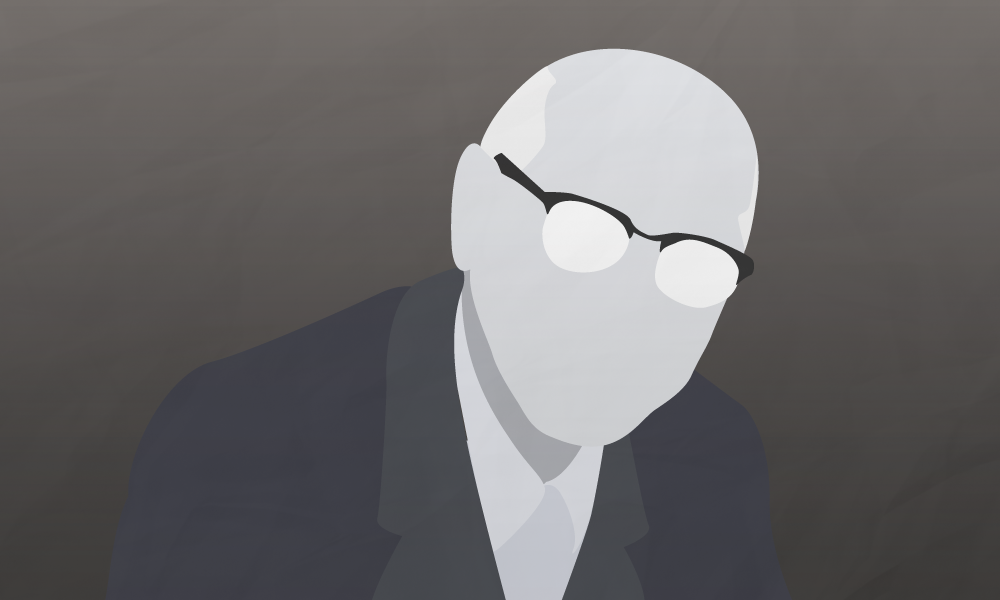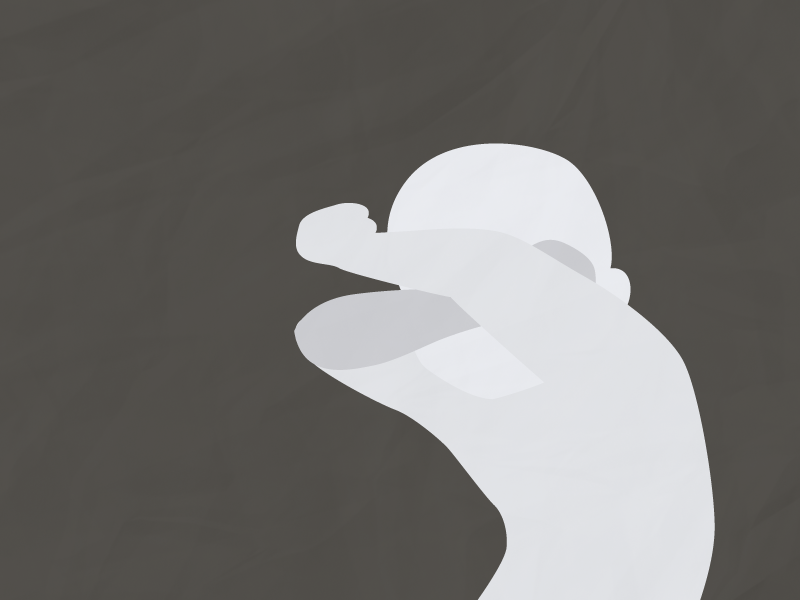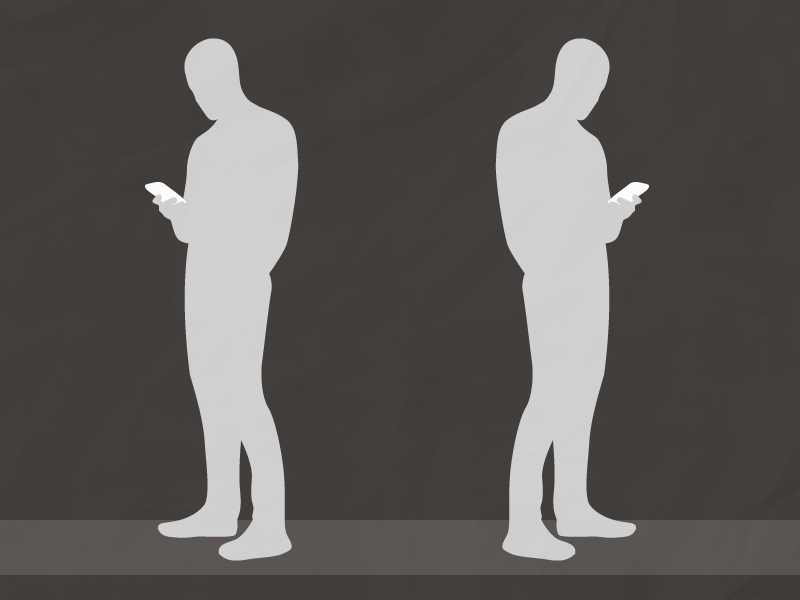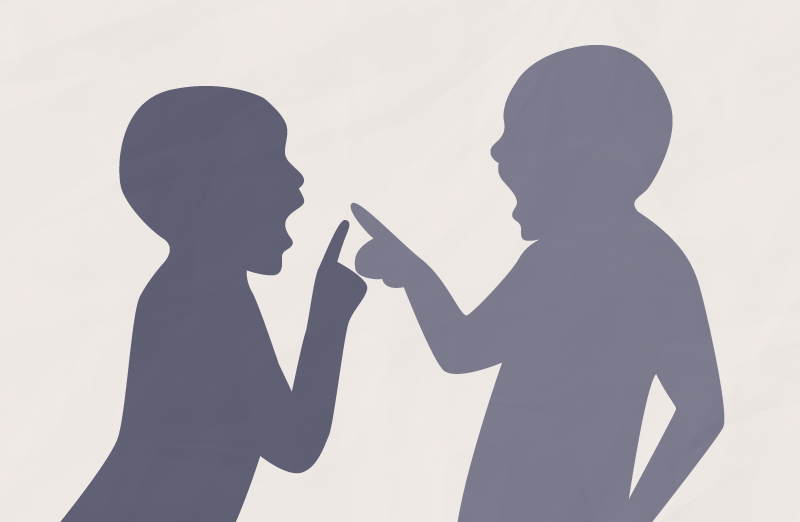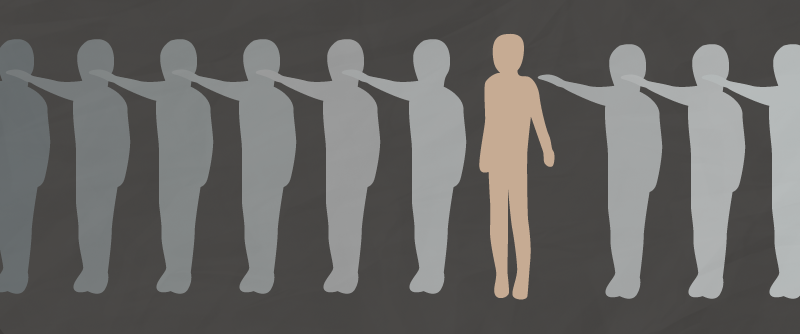Few have ever witnessed the dehumanizing potential of mass society so up close as Bruno Bettelheim. After internment at Dachau and Buchenwald, Bettelheim came to America, where he served as director of the Orthogenic School at the University of Chicago from 1944 to 1973. There, he practiced what might be best described as a humanistic form of psychoanalytic theory. His approach was profoundly influenced by his experience of the camps, and, because of this, he went on to view his students — most living with either autism or prior emotional trauma — as struggling to develop an authentic sense of self in balance with an authentic sense of community. It’s important to note too that “authentic” here means what is emotionally and psychologically sustainable, derived from profound consideration of one’s self and one’s community. Many who were closest to Bettelheim in his decades at the school speak of his steadfast dedication to the regeneration of his young students, but, it should be noted, considerable controversy has mounted on this subject (and his reputation in general) since his death.
Robert Gottlieb, in his February 2003 New York Review of Books piece “The Strange Case of Dr. B,” attempts to sort out Bettelheim’s posthumous reputation, warts and all. He addresses the allegations that Bettelheim exaggerated his academic credentials and plagiarized a small portion of The Uses of Enchantment, each of which he treats with some moderate level of concern. More seriously, however, are the credible claims Bettelheim resorted to corporal punishment of children in his care at the Orthogenic School. Gottlieb cites Theron Raines, Bettelheim’s long time agent, sympathizer, and author of Rising to the Light: A Portrait of Bruno Bettelheim for Bettelheim’s own account of the abuse claims by students of the school like this:
Sometimes one [child] would get so out of control, so out of bounds, that some radical measure was needed as a shortcut. It’s an undesirable shortcut. It was against all my principles to hit the children, but I learned that sometimes it’s a shortcut that is important for the person — to feel that they can be controlled, because the anxiety of their getting completely out of control is very great.
Gottlieb also reveals Richard Pollak, the author of The Creation of Dr. B, as much less sympathetic to his subject than Raines. When Pollak was younger, his 11-year-old younger brother Stephen, a student at the Orthogenic School, died suddenly. It was determined to be an accident. In mourning, the family approached Bettelheim about the sudden death, but he showed no remorse and no seeming empathy. In fact, according to Pollak’s account, Bettelheim castigated the family, saying the boy was capable of self-harm — implying it was a suicide — and essentially blamed them for their child’s death. Following this, it’s understandable, Gottlieb says, for Pollak to take the hostile attitude toward Bettelheim that he did. Add to this Bettelheim’s criticism of Otto Frank, his at-times-virulent conservative tilt during the 1960s, and his claim that autism was somehow the fault of emotionally distant mothers, and you have in Bettelheim at the very least a very flawed man. But Gottlieb examines at length the sympathetic side of Bettelheim too.
In particular, he delves into Stephen Eliot’s Not the Thing I Was: Thirteen Years at Bruno Bettelheim’s Orthogenic School. He notes Eliot’s “progress from a boastful, insecure little boy isolated within his very capable brain (‘My world ended at my shoes’) and terrified of never having enough contact with others to make a real life possible, to a compassionate young man eagerly helping the younger children.” Eliot acknowledges Bettelheim’s capacity for physical and verbal cruelty, but he chooses to see Bettelheim, as Gottlieb relates, “as a flawed, destructive, ultimately tragic man.” He wonders if his old schoolmaster’s suicide was “a final cry of desperation, for despite all he had done, his life’s work was fading as was his memory and one man can only do so much. In the final analysis, his work was not enough to change the world in the way he envisioned. It was, however, enough for me.”
For all his flaws, Bettelheim was a prime innovator of psychoanalytic-inspired practice and rehabilitation, informed significantly by his own experiences in the camps of Dachau and Buchenwald. He saw the fragile balance of authentic selfhood and community as directly threatened by instrumentalist and authoritarian forces. In The Informed Heart, he develops his concept of “autonomy,” which is the ability for one to self-reflect and self-assess personal meaning, sustainably, within a broader community. Yet, the tension between the inner and the outer always remains. Mass society dehumanizes; this much we already knew. And of course this is staggeringly, grotesquely true of Bettelheim’s time in the camps and of the totalitarian regimes of the 20th century. But mass society itself has not gone away. It has only shifted in form, animated by new (and not so new) ideologies demanding our precarious attention spans every day.
It should be noted Bettelheim is not a luddite nor a reactionary, nor should any of us be. He doesn’t claim that we should return to some antediluvian paradise or any such sentimental utopia, if only because there’s never any going back to what never was. If Bettelheim’s a dreamer, he’s a tightly controlled one. In The Informed Heart, he even accepts the utilitarian good possible through the advance of technology, but he warns of where its elevation into instrumentalism can lead:
A solution can only be found by opposing inner and outer freedom; emotional freedom to the freedom to roam or discharge aggression. The greatest danger of our machine made wealth grows out of this: that for the first time we are living in an age when material comfort is possible for almost everyone. But if this, because it is so much more available, is sought not in addition to emotional contentment but in lieu of it, then there is a danger of our becoming addicted to it. We will need more and more technological progress to cover up our emotional want and discomfort. This, as I see it, is the only danger of the machine age. But it is neither necessary nor inherent in it.
To prevent this backslide into an ever-thickening technological balm for our social and emotional wants and needs, we can seek Bettelheim’s notion of autonomy. Caution is required though. By autonomy, he does not mean Romantic individualism or bourgeois self-sufficiency, as he has little truck with such value systems. Instead, he casts it as “a conscientious search for meaning despite the realization that, as far as we know, there is no purpose to one’s life.” Autonomy for him rather is not “a revolt against authority qua authority, but rather a quiet acting out of inner conviction, not out of convenience or resentment, or because of external persuasion or control.” Autonomy takes for granted the suffocating strictures of mass society and mass media and resists them by assigning moral value to authentic selfhood and community.
But what do we do in a time of peril, when instrumentalism or authoritarianism occupy us like we’re a host body? In his “Remarks on the Psychological Appeal of Totalitarianism”, Bettelheim contends that “in modern totalitarian states, the mass media provide nearly unlimited opportunities to influence everybody’s thoughts.” It’s uncontroversial to argue mass society is regulated by mass media; the tricky part is to identify the latter’s permutations and how subjects are manipulated by them. And because this is a matter of personal autonomy, discerning which thoughts are the product of personal reflection and which are the product of mass media coercion requires an authentic notion of selfhood independent from one’s identity on instrumentalized platforms like social media.
Bettelheim observes that “modern technology facilitates surveillance in even the most private activities . . . that subjects are to think on their own but nevertheless arrive at exactly those convictions which the state wishes them to hold.” Now, yes, he was writing in an environment where broadcast media, so easily given to direct state influence, predominated. Social media’s influence, however, is more difficult to reduce because of its enormous potential to be used for good, ill, or mind-swarming stimulation that indiscriminately smothers attention span, as many who’ve recently gotten off a Twitter binge can tell you. If the state were to convey via social media exactly the convictions one should hold, it’d need a more elaborate strategy than if it were merely pressing them on broadcast media. It’s the very intricacy of the social media ecosystem that makes it so hard to assess in the terms Bettelheim saw mass media, but his ideas are very applicable still.
Bettelheim teaches us that if we don’t know how to resist the seductions and pressures of mass media and we’re therefore stripped of our autonomy, we face an almost impossible task of resistance to outside influences looking to profit or dominate as a result. And the problem is instrumentalized platforms like social media cannot really be avoided. With all of their practical benefits and socially deleterious effects, one can’t avoid them. But their greatest danger may be their blurring of inner and outer well-being and the self-possession required to maintain it. “According to psychoanalytic theory,” Bettelheim writes in his aforementioned Remarks, “the task of the ego is to protect the inner and outer well-being and, most of all, the survival of the individual mediating the external and internal worlds and bring them into concordance.” The ego then does not just discern the nature inner and outer reality; it must balance them to produce autonomy, to derive an authentic sense of self and community. In Freudian psychodynamics, the ego always bears the greatest burden of one’s psyche, but Bettelheim takes it a step further, asserting the centrality of the ego in the moral survival of the individual in mass society.
And yet the stress of isolation is what can lead an individual right into the clutches of demagoguery. Hannah Arendt aptly notes in The Origins of Totalitarianism that “the chief characteristic of the mass man is not brutality and backwardness, but his isolation and lack of normal social relationships.” Today, arguably the most isolating dimension of mass media is social media, and it’s paradoxically isolating effects are well-documented. In fact, lack of normal social relationships are by definition the norm on social media. And even if social media is too broad in its application to be easily reduced to concrete moral or social value, its morally and socially deleterious effects are undeniably numerous, and those effects directly relate to what Bettelheim warns is the social disintegration wrought by mass media.
By projecting an aspirational, idealized self onto instrumentalized platforms like those social media offers, we are forfeiting our autonomy, Bettelheim would contend. And since social media companies’ primary purpose for being is to mine their users for data so as to market to them, what results is the loss of autonomy to a false self and community existing at the mercy of profit-driven instrumentalist forces encouraging a transference of selfhood to algorithms designed to instrumentalize one’s desires and reinforce a wholly artificial selfhood. This leaves most of us bereft of autonomy and with a profound sense of loneliness.
Stephen Marche, in a May 2012 piece on social media in the Atlantic, writes “we have never been more detached from each other, or lonelier. In a world consumed by ever more novel modes of socializing, we have less and less actual society. We live in an accelerated contradiction: the more connected we become, the lonelier we are.” Loneliness deprives us, of course, of the opportunity to gain a sense of authentic selfhood by separating us from the authentic community we need to meaningfully understand ourselves. When we neglect our need for autonomy, we lose control of our lives. Marche goes on to write how “it’s a lonely business, wandering the labyrinths of our friends’ and pseudo-friends’ projected identities trying to figure out what part of ourselves we ought to project, who will listen, and what they will hear.”
But maybe most devastating in its implications for social media are the findings by John Cacioppo, whom Marche calls the world’s leading expert on loneliness. Cacioppo, the director of the Center for Cognitive and Social Neuroscience at the University of Chicago, contends that “forming connections with pets or online friends or even God is a noble attempt by an obligatorily gregarious creature to satisfy a compelling need.” Initially, he studied the physiological toll of loneliness and its associated social manifestations. But when he turned his attention to social media, the more concerning the data became to him. “The greater proportion of face-to-face interactions you have, the less lonely you are,” he says. “The greater proportion of online interactions, the lonelier you are.” Loneliness is the engine of social disintegration and social media undoubtedly exacerbates it in wide swathes of the population. But there’s a larger question beyond the loneliness social media breeds in most. Is the instrumentalism that drives these platforms fundamentally illiberal?
Instrumentalism is as potent as ever, particularly the Silicon Valley variety, which is essentially utopian libertarianism that venerates technology as a moral and not merely utilitarian good. Sarah Jones, in a December 2016 piece for The New Republic, cites theorists Richard Barbrook and Andy Cameron as identifying a “Californian ideology” embraced by Silicon Valley tech entrepreneurs and investors that demonstrates “a profound faith in the emancipatory potential of the information technologies.” Jones goes on to note Barbrook and Cameron’s pessimism on this account, in that they “believed that the Valley’s trenchant libertarianism would prevent it from achieving emancipation for anyone but tech moguls.”
It’s an ideology that’s difficult to define precisely, but Jones writes that Silicon Valley instrumentalism might best be described as “solutionism,” defined by the Belarusian writer Evgeny Morozov as “an intellectual pathology that recognizes problems as problems based on just one criterion: whether they are ‘solvable’ with a nice and clean technological solution.” Clearly, “solutionism” has its blind spots, such as its de facto amorality and, maybe most important, the vulnerability of its platforms to unscrupulous, charismatic personalities and demagogues spreading illiberal ideas contrary to the putative ideology of tech’s vanguard entrepreneurs and investors. Through the amoral tech vision of total personal liberty comes the direct and unfiltered means through which demagogues, authoritarians, and other illiberal actors may co-opt a credulous audience that has already surrendered their authentic selfhood and community to instrumentalized selfhood and community, thus deepening their isolation and accelerating potential social disintegration.
Bettelheim proves prescient on mass media exacerbated scapegoating of others too. By observing that “by blaming outside forces for their actions, they (the subjects of authoritarianism) are not only denied having personal control of their lives, but also that what they did was of no consequence. Blaming others, or outside conditions for one’s own misbehavior may be the child’s privilege; if an adult denies responsibility for his actions, it is another step toward personality disintegration.” Self-debasement comes with a lack of agency. Whether you’re the scapegoated other or one of the resentful mob, your autonomy hangs perilously in the balance. Autonomy is the ability to sustain an authentic sense of self in balance with an authentic sense of community, which in turn can be undone through scapegoating out of mass media-induced alienation or loneliness.
With social media, we are now the mass media ourselves, and Bettelheim reminds just how far mass media can go toward total dehumanization; how that happens is what’s crucial to note. “State control over the individual,” he writes in The Informed Heart, “was due at least in part to a mutual process. Man’s inability to regulate his own life encouraged the state to control him. This made him even less able to make decisions and required broader control, which in turn added to the failure of self-regulation.” No matter the impetus, our willing transformation of ourselves into mass media can hasten social disintegration, and rarely does social disintegration lead to less state control. We are now always vulnerable to predatory demagogues able to insinuate themselves more seamlessly than ever through mass media into our emotional wants and needs to the point where we are consubstantial with exploitative forces themselves. Bettelheim’s prescription of autonomy is the means of resistance.
All the while, the broader instrumentalist threat to autonomy remains an omnipresent reality. Those who seek the perfection of the machine transform the utilitarian into the moral, negating both. When transactional values become transcendent values, cynicism is the only logical result. In one of the most chilling passages in The Informed Heart, Bettelheim reflects on just how far this cynically instrumentalist mindset can go, observing “it is this pride in professional skill and knowledge, irrespective of moral implications, that is so dangerous. As a feature of modern society oriented toward technological competence, it is still with us, though the concentration camps and crematoria are no longer here. Auschwitz is gone, but as long as this attitude remains with us we shall not be safe from the indifference to life at its core.”
With enough exposure to instrumentalist or authoritarian messaging, Bettelheim reminds us of the risk to those who even possess strong senses of autonomy with an anecdote of failed personal resolve under the Hitler regime. Again from the Remarks:
A young German psychologist recalled how this had worked in her life. She had been a child during the early years of Hitler’s regime. Her father, whom she loved and whose values she shared, was a strong opponent of the Nazi movement. But she had to go to school, and there she had to swear allegiance to the Fuhrer and give the Hitler salute many times each day. But as she did what her safety required, she loathed herself, and it became more difficult to maintain her self-respect and still keep the pretense. Finally, rather than act a lie any longer, she gave up her mental reservation and swore allegiance and saluted like anybody else.
Here it’s clear that Bettelheim’s notion of autonomy is a fragile thing, for once dehumanizing sentiments strike root in the unconscious, they’re difficult to root out. Then we become an enemy to ourselves, victims of a self-undermining reflex, no matter the former strength of our egos. In a more prominent example, the great German theologian Paul Tillich fled the Hitler regime early because he suspected that what happened to the young German girl in the above anecdote would almost certainly happen to him. He knew he could never accept Hitlerian fascism, but he noted many years after the fact that his “unconscious knew better.” So he left Germany in 1933, according to Bettelheim, to prevent “his unconscious from eventually overpowering his conscious convictions.” If one stays, it’s a choice between submission and spiritual death.
Having faced that very choice in the late 1930s, Bettelheim, in The Informed Heart, reflects at length on his time in the concentration camps of Dachau and Buchenwald and how it shaped his approach to psychoanalysis and his postwar dedication to counseling autistic and traumatized children at the Orthogenic School. After the war he saw the imperative of accounting for the self, as psychoanalysis does, and accounting for one’s environment, as Freudian psychoanalysis does as it relates directly to the self. Bettelheim came to see the limitations of psychoanalysis and changed course. “It had to be the environment,” he writes, “that was not yet existent, and which had therefore to be specially designed for the purpose. It had to be an environment that offered meaningful human relations, satisfying living conditions and significant goals, not simply an application of psychoanalysis to the life they already knew.” In Freud, one could contend there was a lingering humanism and an explicit rationalism, neither which could quite account for the complicating factor of environment and its inextricable link with the self. But Bettelheim recognizes the necessity of authentic selfhood and community required for autonomy are bound up in each other, and the absence of one can easily negate the other.
Bettelheim goes on to articulate succinctly what his experience of the camps did for his eventual practice of psychoanalysis. Reflecting on what lessons he’d learned, he offers two:
Firstly: psychoanalysis is by no means the most effective way to change personality. Being placed in a particular type of environment can produce much more radical changes, and in a much shorter time.
Secondly: the then existing psychoanalytic theory was inadequate to explain fully what happened to the prisoners; it gave little guidance for understanding what makes for the “good” life, the “good” man. Applied within the appropriate frame of reference it clarified much. Outside of its particular frame of reference, or applied to phenomena outside its province, it distorted their meaning instead of clarifying them.
While it told much about the “hidden” in man, it told much less about the “true” man. To use one example: it became obvious that the ego was by no means just a weak servant of the id or the superego. Some men revealed astonishing ego that seemed derived from neither id nor superego.
Like Freud, Bettelheim saw himself as one working within a rational framework to improve the lives of the mentally and emotionally distressed and traumatized, with the goal of greater autonomy for the subject. But it is clear from his disillusionment with psychoanalysis in its classic Viennese form that is must be adapted and broadened to have relevance for his practice. No longer, he contends, can therapy alone heal sufficiently. Context was essential to explaining an individual’s psychology, yes, but more importantly for assigning moral value. In assigning moral value, we gain autonomy. This is what Bettelheim means by looking for “the good” instead of merely accounting for the past. In only accounting for the past, the analyst only seeks to uncover the hidden, as if revealing it would be a curative for all of a patient’s ills. But Bettelheim rightly aims to help a patient to self-realization, to his or her “true” self, in the name of autonomy.
Bettelheim’s is a plea for autonomy. By seeking authentic selfhood and community and, through them, cultivating autonomy, the blank stare of the machine we inhabit can go the way of Nietzsche’s blinking mass man. It’s not our desires, loves, and anxieties that make us human, Bettelheim teaches us, but the embrace of them in ourselves and in others despite the siege of exploitative forces we face. Simple as it sounds, he encourages us to disengage from the instrumental and the demagogic and to engage in real dialogue in real communion with others physically around us. Without it, social disintegration, already well underway, is inexorable. Autonomy is agency in harmony with the agency of others. It’s a coming to terms, a stability, within our own instability. •
All images created by Shannon Sands.
